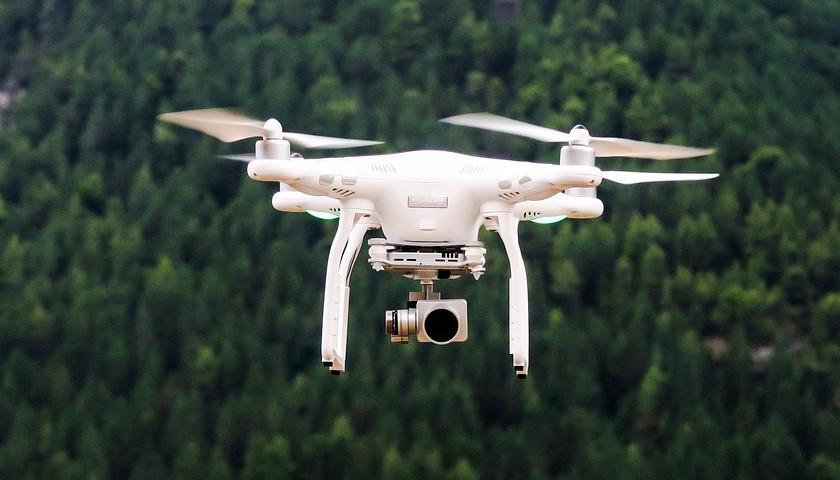by Scott McClallen
The Michigan Supreme Court agreed to decide whether the government can use drones to surveil private property without a warrant and then use that evidence in court for zoning violations.
For two years, Long Lake Township zoning officials flew a drone over Todd and Heather Maxon’s property in northern Michigan, taking photographs and videos as part of a zoning dispute.
The Institute for Justice, a public interest law firm, says the government violated the Fourth Amendment when it used warrantless drone surveillance to snap pictures of Todd Maxon’s 5-acre property in Long Lake Township, where he repairs cars, as proof of zoning violations.
“The government cannot intrude on your home with a drone to surveil you – without a warrant – then use the information it gathered against you in court,” IJ Attorney Mike Greenberg said in a statement. “That is precisely the kind of snooping the Fourth Amendment exists to guard against, and we look forward to arguing exactly that to the state supreme court’s justices.”
The Center Square covered this story in October.
For years, officials have been trying to pin zoning violations on the Maxons, a lawsuit says. The government first brought a code enforcement lawsuit against them in 2007, claiming they’d illegally stored “junk” on the property.
The Maxons fought the case and won in 2008, with the government agreeing to a favorable settlement in which it agreed to drop the lawsuit against them and reimbursed the Maxons for $3,000 in attorneys’ fees and a promise the government would “not … bring further zoning enforcement action against Defendant Maxon based upon the same facts and circumstances which were revealed during the course of discovery….”
Less than a decade later, Long Lake amended its zoning code and used a drone to surveil the Maxons’ home. The lawsuit says the government flew the drone over their property multiple times over two years without seeking a warrant.
In 2018, the government cited Maxon again after it hired a drone operator for $1,200 to enforce alleged code violations.
Now the government wants to use the collected photos and videos as evidence in a zoning enforcement lawsuit to punish the couple for alleged code violations.
“Like every American, I have a right to be secure on my property without being watched by a government drone,” Todd Maxon said in a statement. “I’m thrilled the court will be hearing our arguments so that we can vindicate that right for everyone.”
In September 2022, the Michigan Court of Appeals decided that even if the drone flights violated the Maxons’ Fourth Amendment rights, the government could still use the evidence obtained from the unconstitutional search in court.
The court ruled that the Fourth Amendment’s protection doesn’t apply to investigators hunting for zoning code violations. In the court’s view, IJ says that evidence the government uncovers can be used in civil code-enforcement proceedings, even if the government deliberately violated rights when uncovering that evidence.
If the lower court’s decision stands, IJ says the government would have unfettered discretion to spy.
The lawsuit asks the Michigan Supreme Court to hold that the government violated Maxon’s Fourth Amendment rights and can’t use its illegally obtained photos and videos to punish them in court.
– – –
Scott McClallen is a staff writer covering Michigan and Minnesota for The Center Square. A graduate of Hillsdale College, his work has appeared on Forbes.com and FEE.org. Previously, he worked as a financial analyst at Pepsi.





